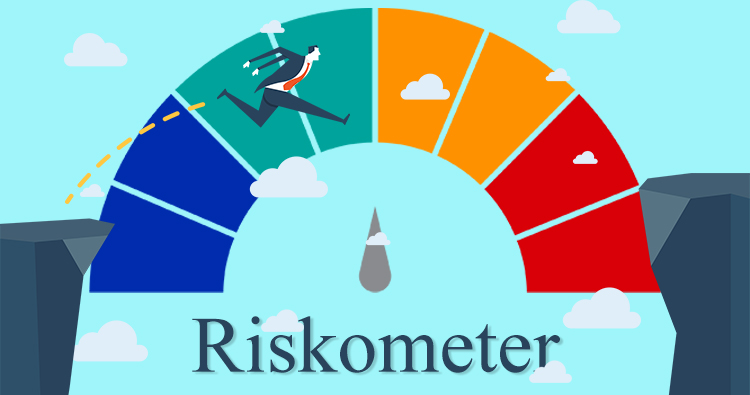

All You Need to About the New Riskometer
Does the risks associated with investing in mutual funds scare you?
The market regulator, The Securities and Exchange Board of India (SEBI) has revamped the existing Risk-o-meter to make it easier for investors like you to invest in mutual funds, as it will reflect the risk taken by the mutual fund schemes.
Here are some important pointers on the newly introduced Risk-o-meter.
1. What is a Riskometer?
Riskometer is a pictorial representation of the level of risks associated with a mutual fund scheme. As per SEBI rules, fund houses have to label their schemes according to the level of risk of their underlying securities.The aim of this form of ‘Product Labeling’ in mutual funds was done to curb the mis-selling of mutual fund schemes by misleading about or concealing any risk attached with the scheme. The Riskometer gives a detailed depiction of the risks and helps the customers in making an informed decision regarding the investment of the scheme.
2. What were the initial categories of risks?
Prior to this update, there were the following five categories of risks or ‘labels’ for mutual funds schemes which fund houses had to depict with different colours:
3. Has SEBI introduced any new risk category?
SEBI has introduced anew category of risk, ‘Very High Risk’.
a. Low Risk
b. Low to Moderate Risk
c. Moderate Risk
d. Moderately High Risk
e. High Risk
f. Very High Risk
4. What is the risk calculation method?
SEBI has laid down the methodology and parameter for calculating the risk associated with the scheme. The securities of the scheme will be assigned a value for each parameter based on which fund houses will calculate the risk and assign a certain risk category to the scheme.
Credit risk, interest rate risk, and liquidity risk are the risk parameters for debt funds.
Market capitalisation, volatility, impact cost (liquidity measure) are the risk parameters for equity funds.
Similarly, risk shall be evaluated for equity derivatives, index futures and stock futures, foreign securities and other instruments.
5. How frequently will fund houses disclose the risk level?
Fund houses have to evaluate the underlying risk of their mutual fund schemes on a monthly basis. Mutual Funds must disclose the Riskometer along with portfolio disclosure for each of their schemes on their website, and on the website of Association of Mutual Funds in India (AMFI). The Riskometer has to be disclosed on the websites within 10 days from the end of each of month.
6. Will the fund house inform me of any change in the Riskometer value of their scheme?
If there is any change in the Riskometer category of a scheme, they must communicate it to the unitholder/customer through a Notice cum Addendum. Besides, such unitholders shall also receive an e-mail or SMS intimating them of the change in the Risk-o-meter value of their scheme.
7. How will the new Riskometer benefit me?
Riskometerhas provided for a more comprehensive assessment of risks associated with a mutual fund scheme. The changes in the risk taken by the fund make for a more accurate placement of the risk label. The disclosure provisions will make the operation of mutual fund schemes more transparent. Besides, keeping investors abreast with the changes in the risk level of their invested scheme will enhance customer awareness.
Conclusion
The latest changes to the Product Labelling of Mutual Fund Schemes is welcome step and will help investors to be aware of the risk taken by the fund. Thus, Riskometer is an effective risk assessment tool facilitating the customers to scrutinize the sustainability of the schemes and decide prudently about their investments.
This blog is purely for educational purpose and not to be treated as an personal advice. Mutual fund investments are subject to market risks, Read all scheme related documents carefully.
my Money Tree
Wealth Management Services
U-8, Phonix Tower,
Vesu Main Road,
Vesu, Surat, Gujarat, India - 395007
+91 7202083660